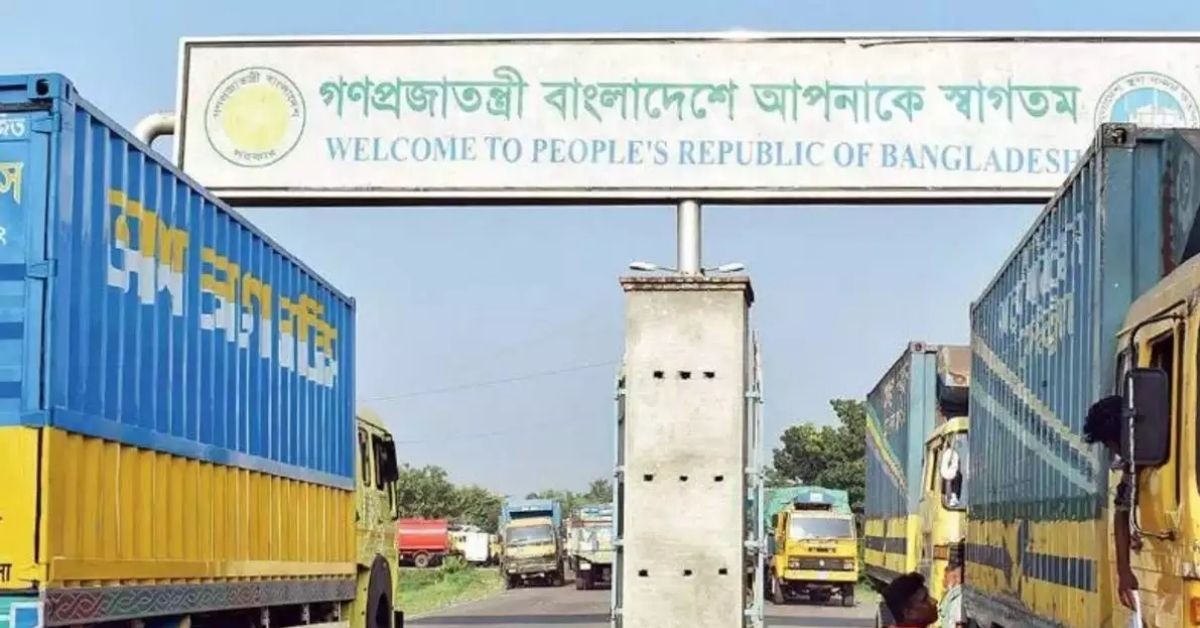Source: Indian Express
Bangladesh’s location and India’s role in its independence have established the “India factor” as a powerful discourse in its domestic politics. The emergence of an “India Out” campaign on social media that advocates the boycott of Indian products with hashtags such as #IndiaOut, #BoycottIndia comes as a reaction to that.
Bangladesh is expected to become a middle-income country by 2041 while it is on track to graduate from the Least Developed Countries list in 2026. Bangladesh finds itself above average on the parameters of the Human Development Index compared to other South Asian countries.
Can Dhaka afford to sever trade ties with Delhi?
According to the World Bank, Indian exports to Bangladesh were valued around $324 million in 1991. This, interestingly, increased to $868 million in 1996 during the first tenure of BNP. Similarly during its second tenure, in 2001, the export from India was around $1.06 billion, which increased to $1.66 billion in 2006.
A close economic partnership between India and Bangladesh has been one of the factors behind Bangladesh’s prosperity. India’s proximity to Bangladesh translates into a natural trade advantage. Shared land borders and well-established transportation links facilitate the movement of goods, often at lower costs compared to imports from more distant locations like China. India is Bangladesh’s second-largest import source, with a staggering $13.69 billion worth of goods entering the Bangladeshi market in 2021-22.
A dominant theme in India’s exports to Bangladesh is the supply chain for the textile industry. Bangladesh’s garment manufacturing sector, a key driver of its economic growth, relies heavily on raw materials and intermediate goods from India. In 2022, non-retail pure cotton yarn and raw cotton (20.1 per cent of total import) were among India’s top imports. These materials are transformed into yarn and fabric in Bangladeshi factories before being used to manufacture garments for domestic consumption as well as for exports.
While textiles reign supreme, India also supplies Bangladesh Refined Petroleum which is crucial for powering industries and transportation. Other significant imports include pharmaceuticals, chemicals, and machinery, highlighting the multifaceted nature of this trade relationship. Recently, India exported 50,000 tonnes of onion to Bangladesh ahead of Ramzan, an exception to the export ban on the crop in December 2023. This is apart from essential commodities such as garlic, coconut oil and spices. There have also been instances of informal trade between the two countries, crucial in stabilising inflation in Bangladesh.
India is a major supplier of construction materials to Bangladesh for infrastructure development. The supply of diesel locomotives, double and single-decker buses, steel coaches, highway duty trucks under Indian Government’s Line of Credit had improved transportation, work efficiency and office capacity in Bangladesh. The loss-incurring Bangladesh Road Transport Corporation (BRTC) is turning profit-making with the supply of new tracks from India.
An intensification of the India Out campaign stands to derail all of these as well as the on-going negotiations on the Comprehensive Economic Partnership Agreement (CEPA) between India and Bangladesh. AL leaders, including Prime Minister Sheikh Hasina, have argued that if the boycott campaign is steadfast, even “garam masala, onions, garlic, ginger and all spices that come from India should not be seen in their (BNP leaders’) homes”.
Young and pragmatic
The educated and moderate younger generation of Bangladeshis consider development as the core of political and diplomatic actions. This cohort is keen to be a partner in the process of economic growth and development and is not sceptical of an alliance with India. This generation has given a massive mandate to the AL-led alliance since 2008, giving hope that in the age of globalisation and commercialisation, boycotting of products is an obsolete idea.








